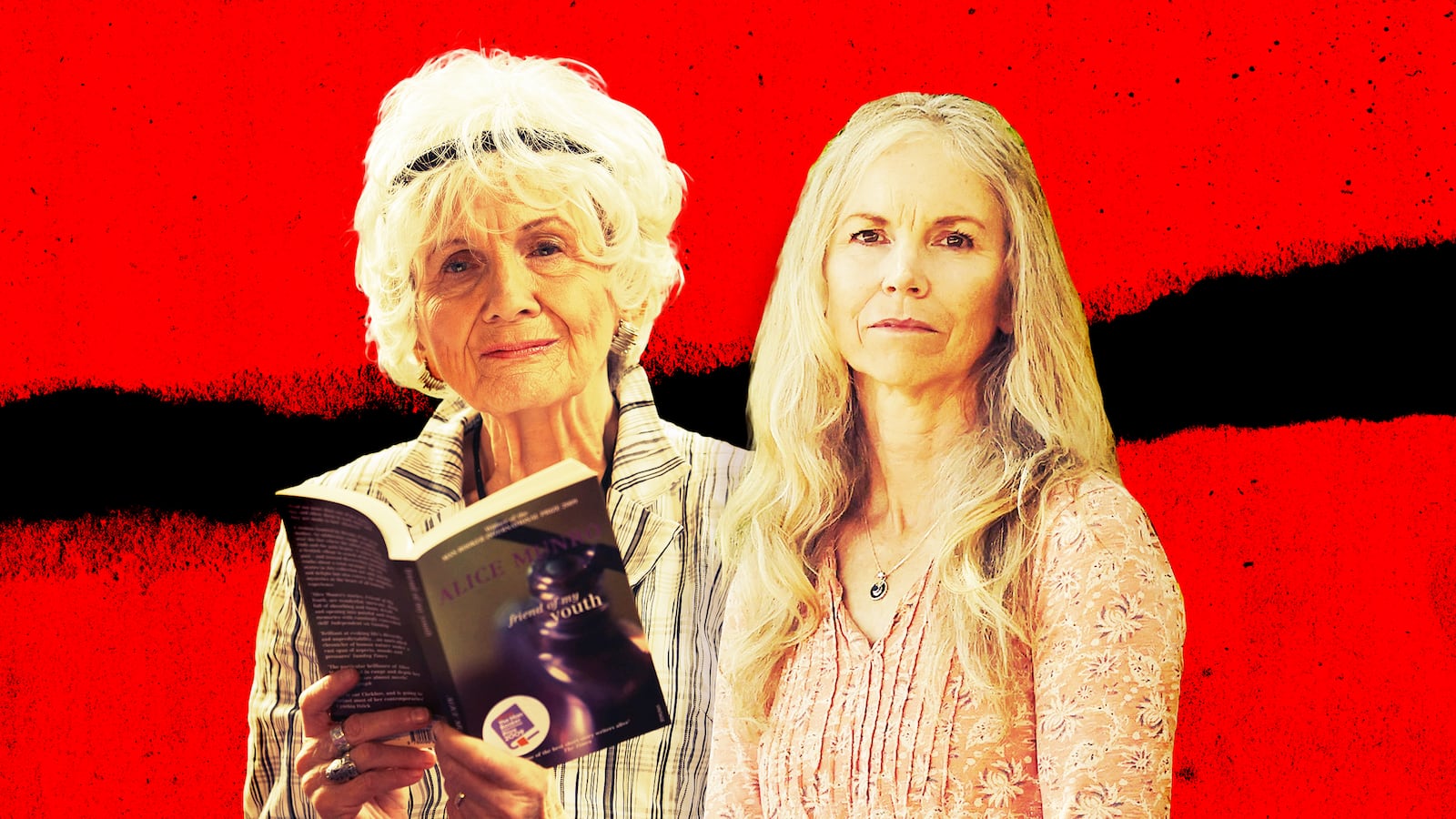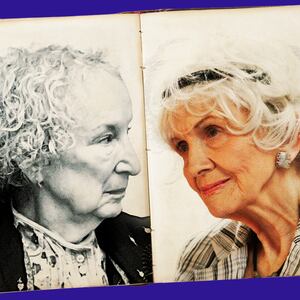Alice Munro, the Canadian writer who won the Nobel Prize for her short stories, packed into their slender boundaries all the heft of a novel. She was a writer who inspired enormous loyalty in her readers, but that devotion will be tested by the revelation made this weekend by Munro’s daughter, Andrea Robin Skinner, that she was sexually abused by her stepfather, Gerard Fremlin, Munro’s second husband, and that Munro, when told, did nothing about it. As Andrea wrote in a coruscating op-ed in the Toronto Star this weekend, her mother “chose to stay with and protect my abuser.”
Munro’s stories have been revered for their quiet wisdom and epiphanic grace. Her calm and smiling face in photographs reinforce the idea of a secular saint. Munro. who died in May aged 92, had even written a short story in which a young woman commits suicide because she has been sexually abused by her stepfather. And yet, when her youngest daughter told her what Fremlin had done to her, the Nobel Prize winner’s reaction was not to grieve for her child, but to complain of Fremlin’s infidelity to her.
Fremlin reacted to the accusations by insisting that the 9-year-old Andrea had been the sexual predator who had forced herself on him. He even called the little girl a “homewrecker.” The situation is creepily reminiscent of Vladimir Nabokov’s novel Lolita, where the pedophile Humbert Humbert marries Charlotte Haze so that he can be closer to her 12-year-old daughter Dolores, aka Lolita.
In the novel, when Charlotte finds out Humbert’s real intentions after reading his diary, she runs out into the road in her anguish and is run over by a passing car. Humbert then abducts his stepdaughter and writes in chilling detail about how she subsequently seduced him. Presumably Munro must have read Lolita, but when confronted with evidence that her husband was not only a pedophile but a man who could not acknowledge his own guilt, she decided, after a brief separation, to forgive him.
Andrea Skinner says that her mother justified herself by saying that she had “been told too late,” that she loved him too much, and “that our misogynistic culture was to blame if I expected her to deny her own needs, sacrifice for her children and make up for the failings of men. She was adamant that whatever had happened was between me and my stepfather. It had nothing to do with her.”
Graham Greene once said that every great writer has a sliver of ice in their heart but in Munro’s case it is not so much a sliver as an iceberg. There is a cognitive dissonance about a woman who is admired for her compassionate feminism, choosing to compound the terrible wrong that had been done to her child. What’s more, it’s hard not to conclude that despite her denial , Munro must have sensed at some level what was going on and used the situation in the short story about the girl who committed suicide. In the story, she writes about the girl’s misery with great empathy, but in real life she washed her hands of her daughter’s trauma.
Nabokov has been pretty much cancelled now for writing Lolita—today’s readers finding it hard to believe that what he was writing was fiction. It will be interesting to see whether Munro’s reputation will survive this revelation. Will her Nobel Prize be rescinded posthumously? Should we condemn a writer’s work because of their horrible shortcomings as human beings? Munro once wrote: “Fiction is serious business. You really have to think these characters through. You have to think about how people really live their lives and the compromises they make.’’
Munro could empathize on the page but not in real life. I hope that by telling her story, her daughter will find some relief. She has been epically betrayed, and I salute her for exposing how her mother lived her life, and the hideous compromise she made.







